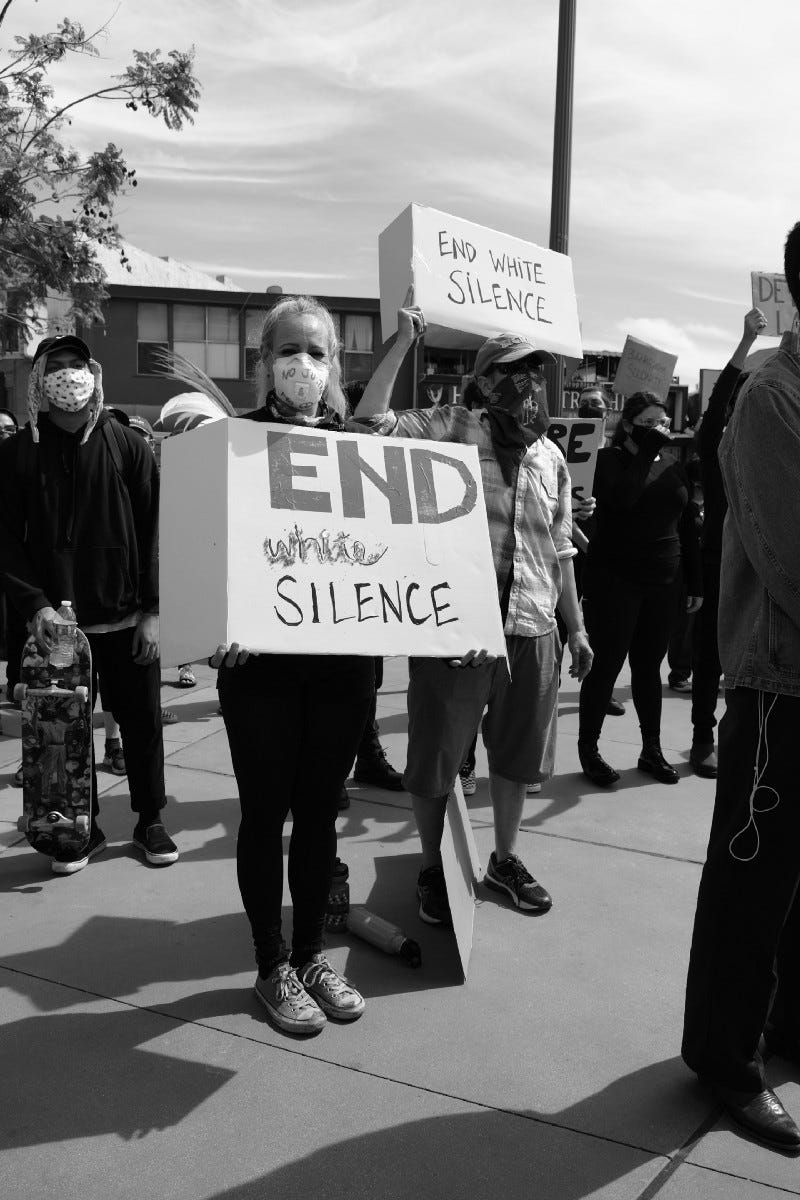Why Is It ‘Brave’ To Speak Out?
I shared my own story recently. A story that I have never shared in so much detail, and with so much vulnerability. I shared my story of…
Spoiler: it’s not.
I shared my own story recently ; a story that I have never shared in so much detail or with so much vulnerability. I shared my story of growing up in a world in which I was, I felt (or feared) ‘fundamentally wrong’, and the impact that this had, and has had, on me. I am sharing my story (and this story) because I am not who I was and sharing my truth allows me to transcend my fears.
I recognise that, for all my flaws and foibles, I am merely hurt and human. I am not perfect. I am often anxious and insecure. I struggle to be vulnerable and to accept my vulnerability. And yet I am also aware that this isn’t about or unique to me. This is something that we all have to deal with. And something that often becomes more entrenched and deceptively insurmountable the longer that we resist [facing] it.
I am used to compartmentalising. To telling a story that, whilst true, does not get to the heart of what I have experienced. It’s not lies or hiding so much as ‘a tacit understanding of the need for space and boundaries’. Less is more, or so I hear. Or perhaps I’m fooling myself.
Either way, I have been experimenting with being more open on my own terms, and it has been incredibly profound and liberating for me. As I lean into who I am, I embrace myself in new ways. I learn to love, accept and cherish all of me — even the parts that previously I would’ve shied away from. They are but part of the rich tapestry that makes me, me. We do not need to be perfect to be loved, lovable or whole. And I yearn to live in a world in which speaking out is no longer ‘brave’ but status quo; where this is just the way in which people respond to BS, injustice or the simple notion of ‘expressing themselves’.
Language is important. The words we use matter. And it is with this in mind that I have been exploring and deconstructing the well-intentioned but (in my opinion) counterproductive notion that sharing oneself in a grounded, adult way that nonetheless owns and expresses personal vulnerability is ‘brave’.
Such judgements speak to the reality of the feedback-giver’s fears about the extent to which their own vulnerability can or will be held by the receiver if expressed. And, with this in mind, they implicitly validate the premise that such expression is atypical — for if it wasn’t, why else would sharing be brave?
It is not such a steep assumption to extrapolate that if emotional expression is atypical, feeling that way may also be so — or at least, that there may be a disconnect between the two. And it is this disconnect that I personally wish to do my bit to tackle. Because the more I face myself, my fears and my feelings head-on, the more I realise that they are usually rooted in shame and silence.
And the same is true of others. When we tell others, explicitly or otherwise, that they are ‘different’ from us, we do so to separate ourselves from them. We create a bubble around us, a false comfort, a sense of superiority. It is an illusion, self-protective and distasteful, for when we quash ourselves — when we tell ourselves that we are wrong, when we chide ourselves for being or feeling a certain way, when we attempt to deny or avoid a facet of our experience — we also betray ourselves.
And I can’t do that anymore. Or rather — I can, of course I can, but I really f’ing notice it when I do. And I’m committed to not doing that anymore. To being with and breathing through. To noticing what stirs up my unmet needs and core wounds. To being tender; to being really f’ing tender. With myself and others, but myself first and foremost.
At heart, at some essential level, we are all the same.
And yet, of course, we do not all have the same experiences in this world. I am a white-passing British woman from a middle-class background with a history of complex-PTSD. Does my privilege mean that my experiences weren’t — and that my pain isn’t — valid? Of course not. It just means that there are some things that I have been protected from, some things that I haven’t — and will not have to — experience, and some things that I personally have a duty to speak out about when I see them, specifically *because* they do not affect me.
There are some things that I will never understand, and I understand this. Yet I commit to standing with those who experience oppression and doing whatever I can to combat this.
I dream of living in a world in which speaking out is no longer speaking out, but speaking: plain and simple. I am not, and do not want to be, ‘brave’ or ‘moving’. I simply want this — this honesty, this rawness, this love, this connection — to be commonplace. I want us all to find our individual and collective way/s. I want us to come together to forge a new world and be truly, deeply and unflinchingly brave.
All lives cannot matter until Black lives matter.
#inthetrencheswithyou

